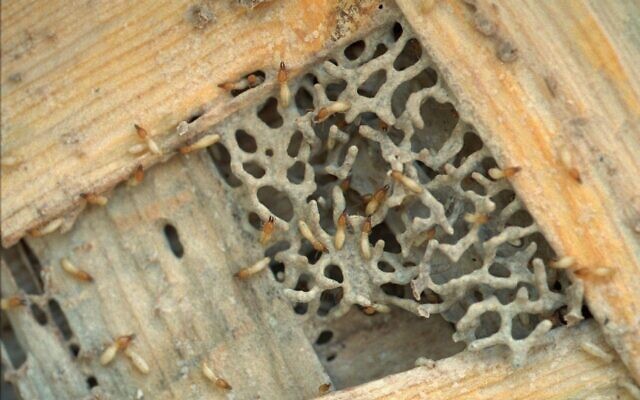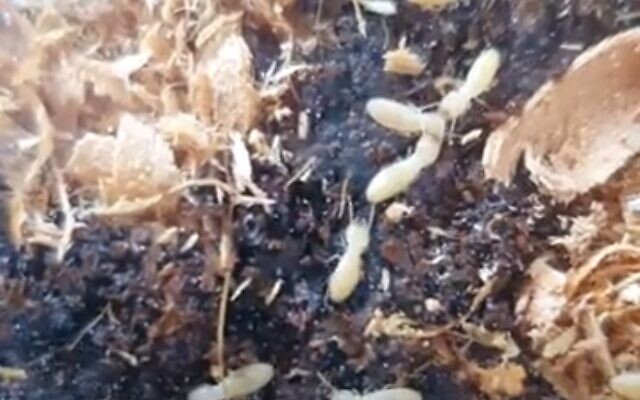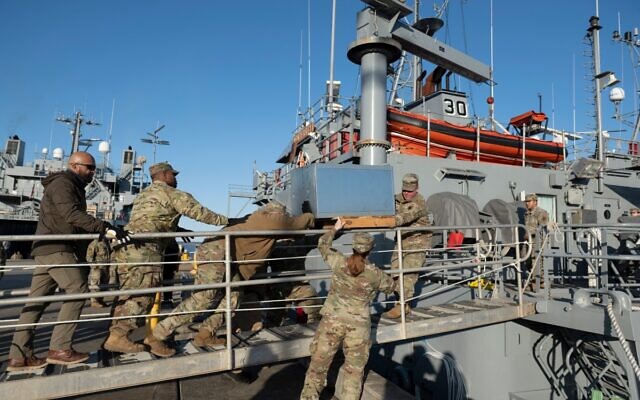Spectacularly destructive ‘super-termite’ arrives in Israel for first time
Confirmed in the central city of Petah Tikva, the Formosan termite has a ravenous appetite for wood, lives in huge colonies and has never been totally eradicated in any country
Sue Surkes is The Times of Israel's environment reporter

The so called “super-termite,” one of the most destructive pests in the world, has arrived in Israel, the Environmental Protection Ministry announced Wednesday.
Coptotermes formosanus, or the Formosan termite, named for Formosa in Taiwan, loves hot, humid conditions and has been confirmed in the city of Petah Tikva, on Israel’s central plain.
The species will eat anything containing cellulose, such as wood, paper or cardboard, and has also been known to devour copper and lead sheets, plaster, asphalt foam insulation boards, plastics and even underground power lines.
In most cases, termite-attacked plants survive. But there are instances in which citrus and eucalyptus trees have died. Both are widely spread in Israel, with the former a key source of agricultural income.
No country infected with this termite has succeeded in eradicating it so far.

The Environmental Protection Ministry is calling on authorities, the public and pest exterminators to look out for the termites and report anything suspicious to local councils and the ministry.
It has also set up an expert committee to deal with the invasion and to set building rules in areas where the termites are active.
Environmental Protection Minister Gila Gamliel warned that with increased trade and global warming, invasive species could be expected to increase.
The species’ destructive capability comes from the size of its colonies, which can number several million members. The queen termite, which lives for some 15 years, lays some 2,000 eggs each day. A colony can reportedly eat up to 400 grams (13 ounces) of wood daily, rendering buildings insecure in a mere few months.
It occurs naturally in southern China. By hitching lifts on ships, it has since traveled throughout the world, gaining an international foothold during the last century.
In the US, it appeared in four isolated port cities in the 1960s and has since spread to all the southeastern states.











